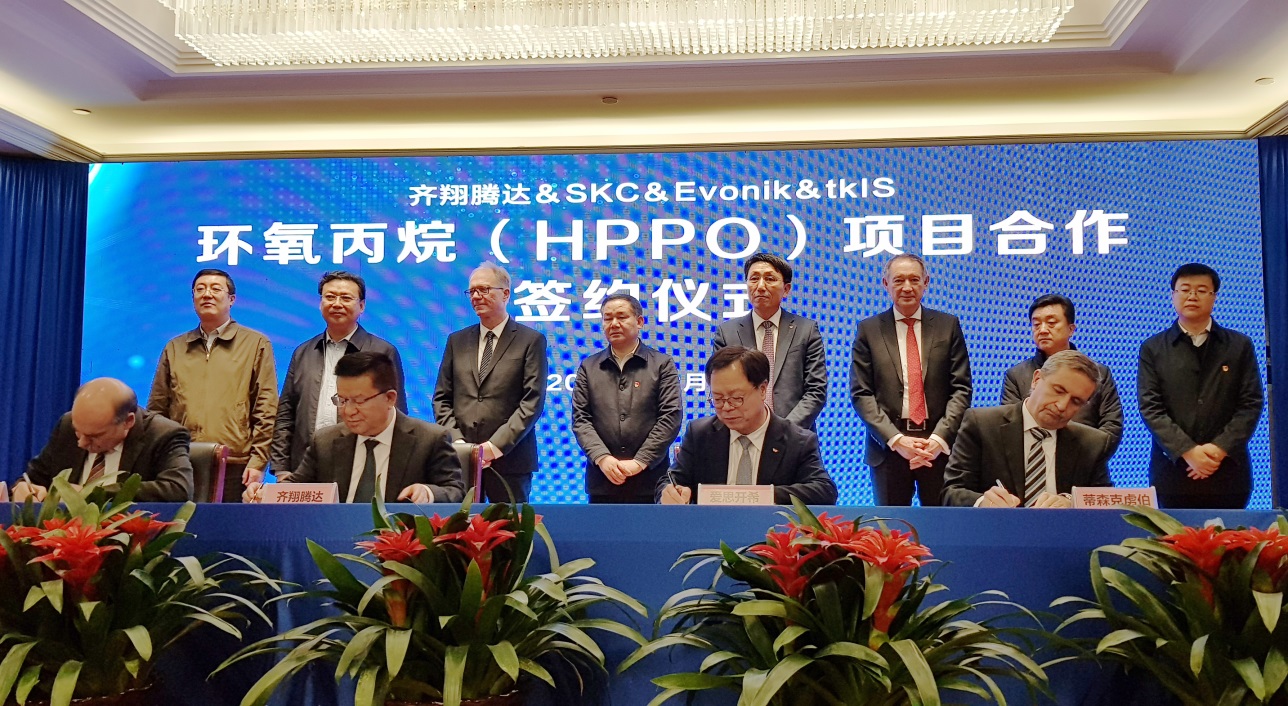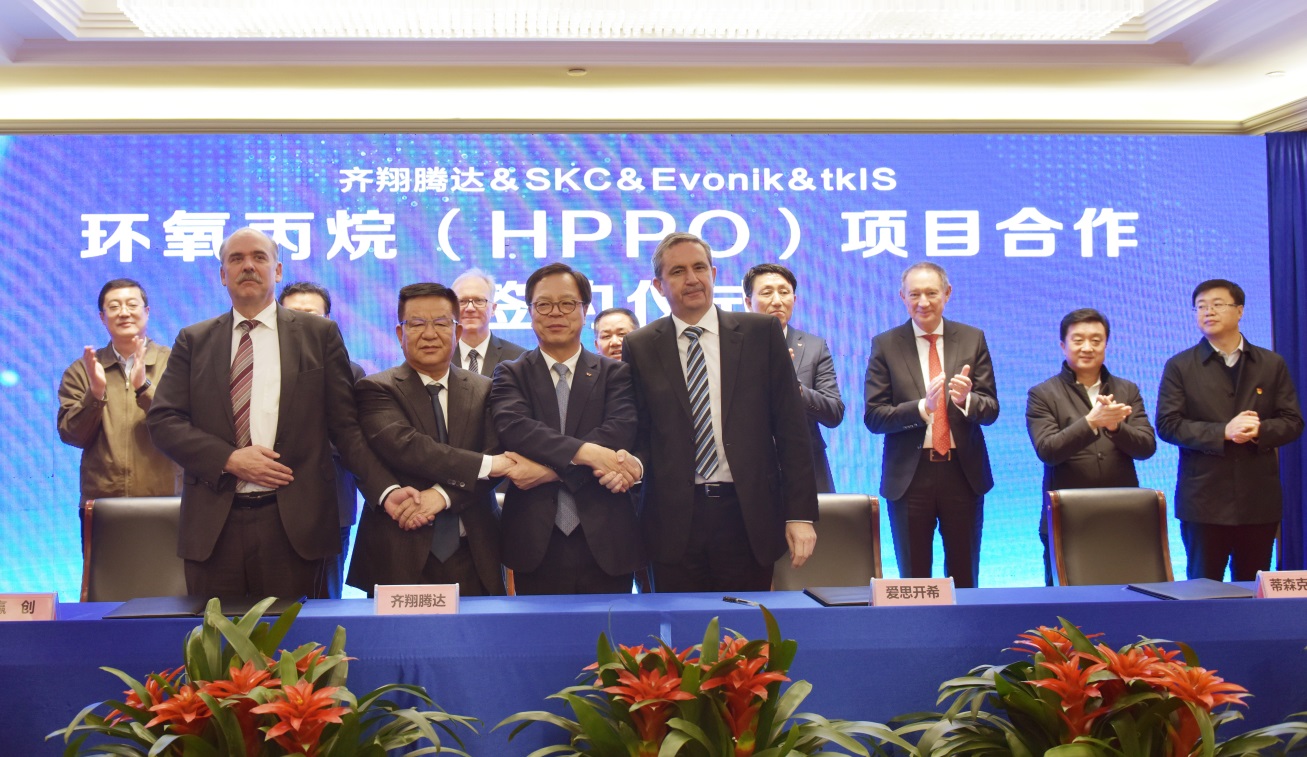NEWS
● 4-Party MOU signed to establish a joint venture for the production of 300,000 tons of environment-friendly PO a year
● Base secured considering the market size and growth potential ... Plans to expand markets into Southeast and Middle East Asia
SKC (CEO Wan-jae Lee) has advanced into the China market with technologies for producing Propylene Oxide (PO) using the hydrogen peroxide to propylene oxide (HPPO) process. The HPPO process is environment-friendly as PO is produced using peroxide without generating any by-products. The PO industry in China is highly interested in the environment-friendly HPPO process as the environmental regulation has been strengthened.
SKC has decided to establish a joint venture for producing PO in China by signing an MOU with Evonik and ThyssenKrupp Industrial Solutions (tkIS) in Germany and QXTD (Zibo Qixiang Tengda Chemical) in Zibo, Shandong, China on January 6. As a subsidiary of the Cedar Holdings Group, China’s 16th largest private enterprise named one of the Fortune Global 500 Companies in 2018, QXTD produces propylene as the raw material of PO.
Under the 4-party cooperation structure, QXTD supplies PO raw materials and SKC provides the HPPO process operating know-how. Germany’s Evonik and tksIS), the joint licensers of the HPPO process, will share the source technologies. The new production facility will be _ base_d in Zibo Chemical Industrial Park where the QXTD factory is located. The annual production capacity will be 300,000 tons, similar to SKC’s production capacity in Korea. Investment ratios and other detailed conditions will be determined through future consultation.
Zibo City in Shandong, China boasts of the best business conditions. Although the PO demand in the surrounding region is over 500,000 tons, there is no supplier. A local producer dismantled its production facility in 2017 because of the environmental regulation that imposes taxes _ base_d on the volume of pollutants discharged. SKC plans to build the new factory using the HPPO process know-how that enabled it to achieve 100% operation rate for over 10 years. The company plans to start commercial operation in the first half of 2021 by commencing construction work in the first half of next year.
The current venture in China is part of SKC’s strategy for expanding its PO business into the global market. SKC plans to supply 1 million tons of PO worldwide by 2025. The company has searched a local partner after signing an MOU with Evonik to explore the global market utilizing the two companies’ HPPO technology and operating know-how in January this year. The current 4-party MOU is the fruit of the efforts it has made so far.
SKC will secure its global PO business _ base_ in South and Middle East Asia following the one in China. The demand in the region represents half of the 9.5 million tons’ global demand. PO is the _ base_ raw material of PPG (polyol), raw material of polyurethane used for car interior, and PG (propylene-glycol) as the raw material for cosmetics and drugs. Global demand grows by 300,000 ~ 400,000 tons each year along with the growth of related industries.
"The steady growth of the global PO market will provide a new growth engine for SKC’s chemical division. We will develop a business model that will work for all of the partners by examining plans to add production facilities of PO-_ base_d PG and PPG in addition to the PO facility," an SKC executive said. [End]

SKC CEO Wan-jae Lee (third from left) signs the MOU for the joint HPPO project with General Manager Michael Drechsler of Evonik Industries AG (first from left), QXTD Chairman Chechengju (second from left), and Peter Sieben, tkIS division head.

SKC CEO Wan-jae Lee (third from left) shakes hands with General Manager Michael Drechsler of Evonik Industries AG (first from left), QXTD Chairman Chechengju (second from left), and Peter Sieben, tkIS division head, at a signing ceremony for the MOU for the joint HPPO project held in Zibo, Shandong, China on the 6th.
